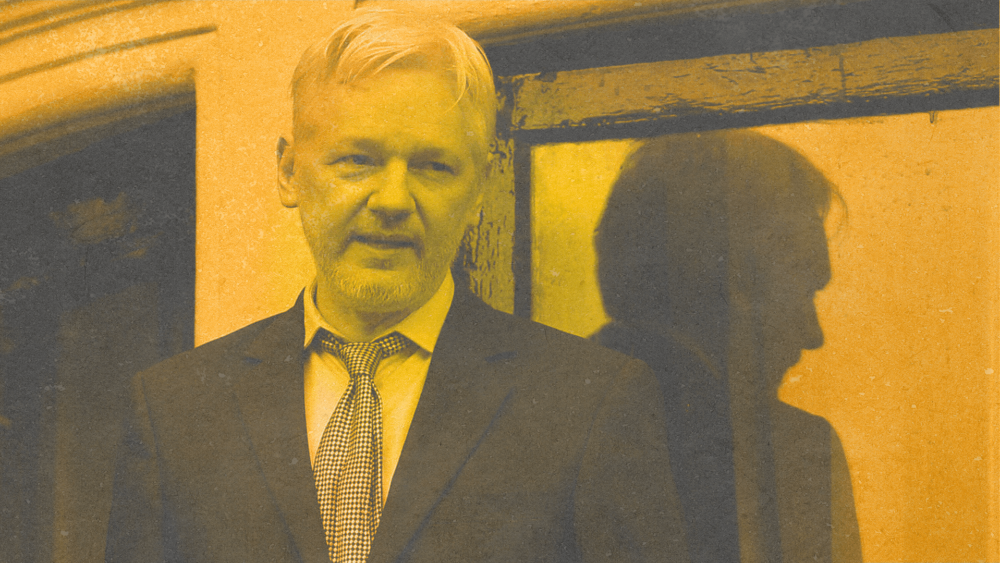A look back to alternative historical figures and events to expand our argument for Assange’s freedom
The line between journalist and spy seems to have always been razor thin in the eyes of western intelligence. Julian Assange is one of the clearest examples of that fine line, with the WikiLeaks founder still facing dire consequences for being perceived as having crossed it.
The comparisons to legendary journalists like Seymour Hersh and whistleblowers like Daniel Ellsberg have been exhausted. It may no longer be possible to find original arguments in favour of Assange and WikiLeaks through legendary stories of persecuted journalists or their publishers.
There’s also been a great deal of media coverage scrutinising the idea of charging a foreign journalist under the US government’s Espionage Act. So, we may need to look to alternative historical figures and events to expand our argument for Julian’s freedom.
“An intelligence agent, contrary to popular opinion, has to be known as such, otherwise people with secrets won’t know where to take them,” Allen Dulles, founding director of the CIA, once wrote.
Understanding that the words of Dulles describe the profile and function of Assange, one might be curious if there existed comparable stories in the world of espionage.
January 1, 1975: Former CIA case officer Philip Agee publishes a memoir of his experiences working for the agency titled ‘Inside the Company’. The book recounts a wide range of atrocities and crimes carried out by the CIA, naming hundreds of CIA agents in numerous countries. His stated intention: inspiring opposition to the role of western intelligence in the realm of global politics and foreign relations.
January 21, 1975: US senator John Pastore proposes the formation of a committee tasked with investigating the legality of all US intelligence agency operations. The committee would later come to fruition and was led by the Democratic senator from Idaho Frank Church. Today we know it as the Church Committee.
December 23, 1975, Athens Greece: CIA station chief Richard Welch is gunned down opening his garage while returning home from a Christmas party with his wife. The culprits were ‘November 17’, a Greek revolutionary group reported to have been motivated by a recent CIA-backed military intervention in Cyprus.
It is not hard to imagine how the above events might be connected, with a view to protect the interests of US intelligence agencies. So, instead, the focus here will be on the accusation that Agee was directly responsible for the assassination of the CIA station chief in Athens through his disclosures, as well as what consequences a member of the espionage community would face for exposing CIA personnel and operations around the world to such potential danger.
First, and much like Assange, Agee hadn’t gotten anyone killed with the information he’d exposed. In fact, Ron Estes, the CIA’s deputy station chief in Athens at the time of the assassination, immediately notified the agency of who he believed to be responsible and how they knew Welch was CIA. To this day he still claims it was Greek intelligence who’d leaked Welch’s identity and address to the Greek press that resulted in the murder of his colleague at the hands of Greek terrorists.
Unfortunately, Washington and the CIA preferred their version of events, according to which Agee’s actions and the subsequent investigations by the Church Committee had cost the life of a CIA station chief. By exploiting this tragedy, they managed to manipulate public opinion, intensify scrutiny on Agee and undermine the efforts the Church Committee had made towards holding the CIA and the US government to account.
Now, were the consequences Agee faced as a spy similar to the ones faced by Assange? Kind of, but not really. Agee published his book while living in England and, as can be easily imagined, the reaction of the UK was less than hospitable. He was expelled and sought refuge in the Netherlands, from where he’d be expelled again. Then again from France, West Germany and Italy. The US government turned its back on him for his sins by revoking his passport.
However, this is where the similarities end. Because Assange’s sins of exposing the wrongdoings of the US government and its intelligence services seem to have earned him life in prison, as he currently faces extradition to the US where it is understood he will be kept silent until death. Agee, on the other hand, was back in the US visiting his parents and children and even appeared on morning television programmes within eight years of having his passport revoked.
Agee’s perceived treason resulted in zero charges and he remained free to come and go as he pleased. He would go on to write several more books, continuing his campaign to disrupt the CIA and its programmes around the world. He lectured at US and European universities on the CIA’s campaign of terror that brutalised the Global South in complicity with the US political and corporate class. Later, Agee would even become a resident of Germany after marrying a ballerina working there at the time.
In the absence of any retaliation by the US government, he was able to live free and pursue his passions until he died at 72 of perforated ulcers. To describe Agee’s life as charmed in comparison to Assange could only be considered an understatement. Agee, an intelligence agent during the Cold War alleged to have posed greater danger and accused of causing more damage than Assange, was subjected to little more than a slap on the wrist by any metric.
Do you want to be informed of DiEM25's actions? Sign up here















